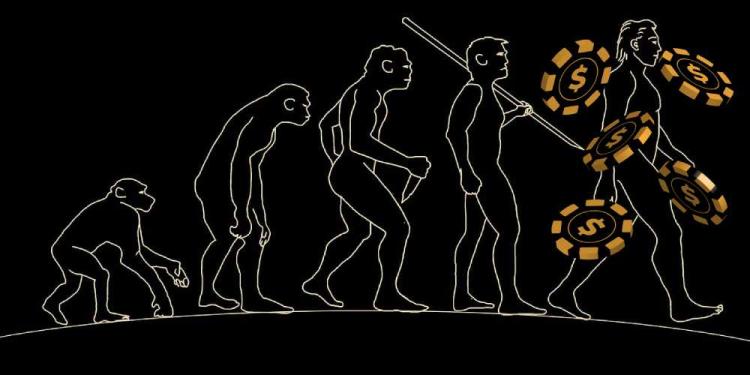The Anthropology of Gambling – The Evolutionary Effect Of Casinos
Posted: March 14, 2025
Updated: March 14, 2025
-
The evolutionary aspects of gambling
-
How to play online gambling games?
-
The anthropology of gambling

The anthropology of gambling explores its deep cultural roots and societal impact. From ancient rituals to modern digital casinos, gambling has shaped and been shaped by human history. This article examines its evolution, influence, and future in a connected world. In conclusion, we are going to bring up all of the anthropological aspects of gambling, seeking to decode the reason why humans gamble, and why this habit is not ceasing into traditional phenomena.
Register at BitCasino.io and play the best games today!
Gambling is not just a game of chance. It is a reflection of human desires, society, and history. From its ritualistic origins to its role in modern entertainment, gambling has always been part of human culture. By understanding the anthropology of gambling, we can see how it connects to power, wealth, and technology. Every society in history has engaged in gambling in some form. Whether through ancient dice games, card games, or modern slot machines, people have always sought ways to test their luck. However, gambling is not just about entertainment.
It reveals much about human behavior, power structures, and cultural change. Throughout time, gambling has evolved from sacred rituals to global industries. This transformation reflects human desires, economic shifts, and cultural values. By examining the development, we uncover its roots, impact, and modern adaptations. Register at any of the online casino sites in Japan and play games from any era of human history!
The Aitia Of Gambling – The Anthropology of Gambling
According to Britannica, just like every ritual in human history, gambling was a way to attempt and communicate with the Gods. Therefore, we can conclude that gambling comes from the encoded human desire for power or control. When humans lacked scientific explanations, they turned to rituals to influence fate. Rolling dice, drawing lots, or flipping coins were early ways to seek guidance from higher powers. Over time, this transformed into gambling as we know it today.
While most modern gamblers do not consider it a sacred act, the emotional motivation remains the same. People gamble because they want to shape their destiny, even if luck is unpredictable. This ancient connection also explains why gambling can feel so powerful. Winning a bet can feel like the universe granting a reward while losing can feel like punishment. Even though we now understand probability better than our ancestors, gambling still triggers the same emotional reactions. Register at BitCasino.io and play with the most diverse collection of games!
A Game Of Status And Wealth
As we discover the anthropology of gambling, we must highlight the privileges connected to the game. Before we had a breakthrough in the evolution of casino culture, gambling was a game only legal for aristocrats. Those working in their field often had no income to gamble with. Furthermore, oftentimes the law just made an exclusion of the wealthy. This exclusivity made gambling a symbol of social status. The ability to bet large amounts showed power and influence. Some rulers even used gambling as a political tool, hosting grand games to entertain guests or strengthen alliances.
These events reinforced class divisions, keeping wealth within the elite. Over time, laws changed, and gambling became more accessible. However, the association between gambling and status never disappeared. Even today, high-stakes poker games, luxury casinos, and private betting circles remain exclusive. Meanwhile, lottery tickets and small-stakes betting attract those hoping to rise to wealth. The dream of winning big and joining the elite continues to drive many to gamble.
Register at BitCasino.io and play the best games today!
Societal Structures – The Anthropology of Gambling
As history progressed, people began to see gambling in a different light. Instead of a privilege for the rich, it became a tool for social mobility. Those who won big could change their lives instantly. This shift turned gambling into an act of rebellion against economic inequality. Soon enough, humans realized that money is power. Therefore, gambling became a form of silent rebellion against the wealthy. Those who hit the jackpot can enter the elite without having to do anything, or without the privilege most rich people were born with.
According to the Oxford Academic, gambling tendencies increase with someone’s wealth. However, people living in poverty tend to wager a higher portion of their income than wealthy people. While at first glance this sounds like low-income people make worse choices, the data suggest something else. Simply, if someone with a $100 income bets $50, that’s 50% of their income. Therefore, for someone who has a $1000 income and bets $50, that’s the 5%. This aspect of gambling highlights the emotional and economic struggles of different social classes. For the rich, gambling is entertainment. For the unwealthy, it is often a desperate attempt at a better life. This contrast shapes attitudes toward gambling and influences regulations around it.
The Neon Pantheon Of Las Vegas
The anthropology of gambling has shown its fruition in the embodiment of Las Vegas and Macau! By the 20th century, gambling transformed once again. It was no longer a secretive pastime of the elite or a rebellious act of the unwealthy. Instead, it became a massive industry driven by politics and organized crime. This shift was most visible in Las Vegas during the 1980s. Las Vegas became the symbol of gambling culture, a city built on bets and fortunes. Mobsters, business tycoons, and politicians all played a role in shaping the city. Casinos funded city growth, and tourism became the lifeblood of the economy.
Gambling stopped becoming the rebellion of the individual and became a scheme of politics. This is how we have experienced the 80s gambling and casino culture. The rise of Las Vegas also changed how people perceived gambling. Instead of a dangerous vice, it was marketed as fun and sophisticated. This rebranding played a key role in the widespread acceptance of gambling. Even today, Las Vegas remains a monument to this transformation, symbolizing both the allure and consequences of gambling culture.
Register at BitCasino.io and play the best games today!
Pop Culture – The Anthropology of Gambling
What’s common in Lady Gaga and James Bond? Well, they both contributed to the relationship between gambling and pop culture. During the development of the gambling industry, it became romanticized and popularized by a piece of media that could reach both the rich and the unwealthy. Therefore, even before we reach the age of casino participation, we already have an amazing idea. Remember the scene at the beginning of the first Iron Man?
Yes, that immortalized Caesar’s Palace. This deep connection between gambling and pop culture influences public perception. It makes gambling feel like an essential part of luxury, adventure, and success. Whether through films, songs, or literature, gambling remains a recurring theme that captures human imagination.
From Dice To Data – Gambling Culture Of A Connected World
In the modern era, gambling has taken a new form. It is no longer limited to casinos or physical spaces. Instead, it has spread into digital culture, affecting entertainment, finance, and even politics. Reaching the end of our statement on the anthropology of gambling, we must also observe the digital culture of casinos. According to the National Geographic, gambling is everywhere nowadays. It’s in your video games, walls, politics, investments, etc.
In the online culture, thanks to advertisements and streamers, we have a whole new era of casino gaming. Video games, streams, videos, memes, strategies, ideas, and philosophies, are all built on one primordial essence: Gambling. This digital shift raises new questions about gambling’s role in society. It is no longer just a physical activity but a deeply integrated part of online culture. Advertisements, influencers, and algorithms constantly promote gambling, making it harder to avoid. As technology advances, gambling continues to evolve, shaping and being shaped by the modern world. Register at BitCasino.io and try web3-equal crypto casinos today!











